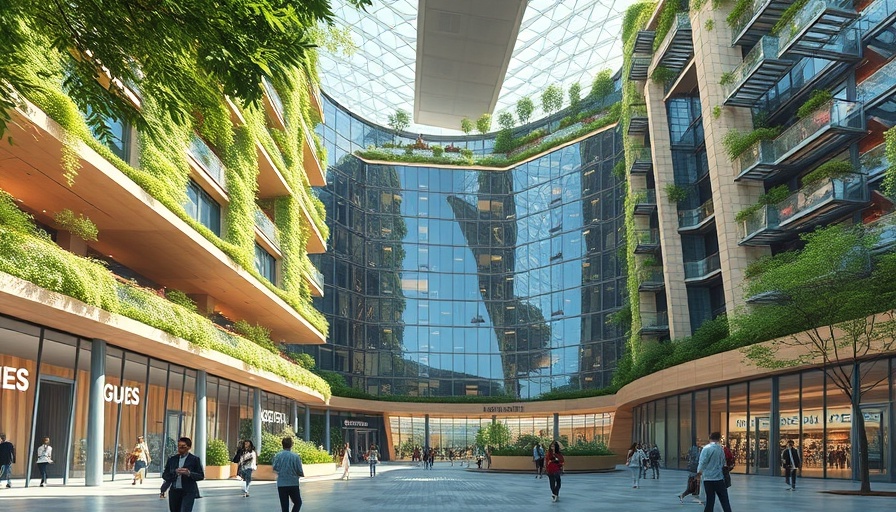
New Low-Carbon Labels Mark a Milestone in Sustainable Building
On September 9, 2025, the Low Carbon Building Initiative (LCBI) unveiled its first low-carbon labels in Germany and Belgium, awarding The Stack, a timber office building in Munich, and Luxia, a low-carbon office project in Brussels. This announcement came at SIBCA, the carbon-neutral real estate trade fair held in Paris from September 3 to 5. The launch represents a significant effort by European real estate leaders and the BBCA (the Low Carbon Building Association) to promote the construction and use of environmentally friendly buildings in urban areas.
Understanding the Impact of Carbon Labels
The introduction of low-carbon labels aims to highlight buildings that demonstrate a commitment to reducing carbon emissions. By obtaining these certifications, The Stack and Luxia are joining a growing trend where stakeholders in the real estate sector prioritize sustainability. Such certifications not only enhance the marketability of these properties but also align with broader EU environmental goals aimed at combating climate change.
Why Low-Carbon Buildings Matter
Low-carbon buildings are essential not just for reducing environmental impact but also for meeting regulatory standards that are increasingly stringent across Europe. As urban areas continue to expand, the carbon footprints of buildings contribute significantly to overall emissions. Investing in low-carbon technologies and materials is a critical step for addressing these environmental challenges. This initiative comes at a time when public awareness of sustainability is at an all-time high, influencing employee satisfaction and retention.
The Role of The Stack and Luxia in the Green Movement
The Stack, located in the heart of Munich, is designed using timber and other sustainable materials, embodying modern architectural innovation. Its design promotes energy efficiency and enhances the workplace experience, which is increasingly important in today's job market. Luxia, situated in proximity to Brussels' city center, similarly prioritizes environmental stewardship while fostering community engagement. Such projects serve as inspiring models for both aspiring entrepreneurs and established businesses seeking to reduce their ecological impact.
Meet Sustainability Standards: A Competitive Advantage
As work environments evolve, companies must consider how physical spaces affect employee well-being. Buildings that meet low-carbon standards not only reduce emissions but can also attract environmentally conscious businesses. A sustainable workplace fosters higher morale, ultimately leading to increased productivity. Therefore, adhering to low-carbon practices is more than just good for the planet; it can significantly boost a company's success.
Future of Low-Carbon Real Estate
Looking ahead, the demand for low-carbon buildings is expected to grow as governments set more stringent regulations to combat climate change. Today's innovations will pave the way for a more sustainable future, facilitating the transition to carbon neutrality in real estate. As organizations embrace these changes, the positive shift in perceptions around sustainability in business will play a crucial role in shaping the future workplace landscape.
Join the Green Movement
The unveiling of the first low-carbon labels in Germany and Belgium highlights a vital step forward in the global push for more sustainable real estate. Investors, companies, and individuals interested in making responsible choices have a unique opportunity to engage with and support these initiatives. Understanding the benefits and importance of low-carbon buildings can influence informed decisions that benefit both stakeholders and the environment.
Let’s collaborate for a greener future. Consider engaging with local initiatives that advocate for low-carbon solutions in your area—or, if you’re in the workforce, encourage your employers to prioritize sustainability in their operations and facilities.
 Rij toevoegen
Rij toevoegen






Write A Comment